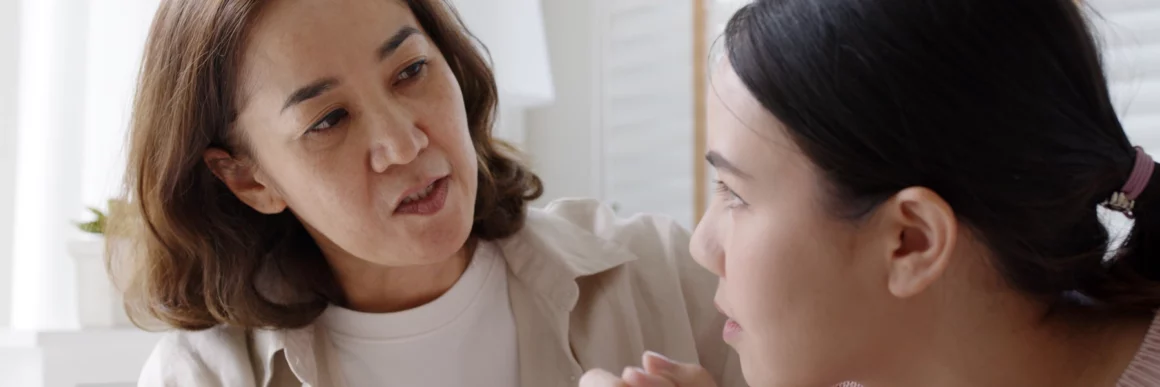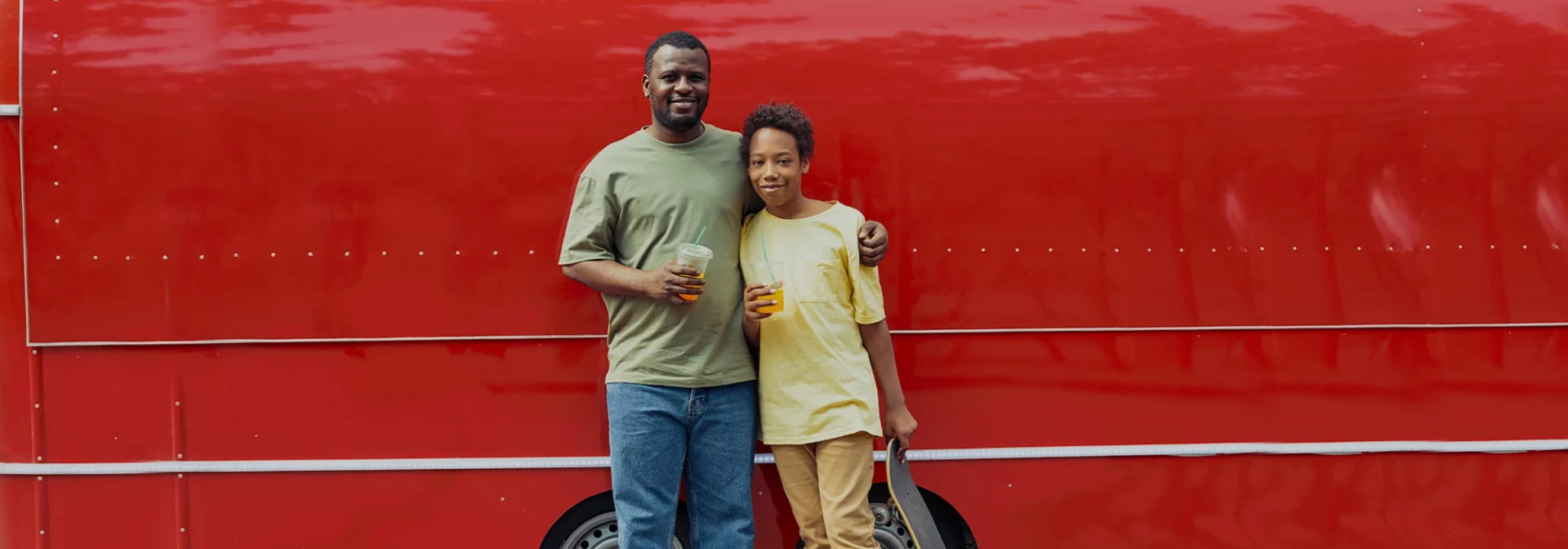Though you may not want to think about child sexual abuse as a parent or caregiver, the reality is that it happens to children of every ethnicity, social class, gender, age, and living situation. Though the thought of someone hurting our children is unfathomable, and our fear cannot stand in the way of us having conversations with our kids about child sexual abuse.
The more we bring awareness, education to the problem, and the more we communicate with our young people, the more prepared they will be to stand up for themselves and prevent abuse.
Getting The Conversation About Child Sexual Abuse Started
Use the following guides to help guide your conversations with your children, depending on their age.
For children with learning differences (cognitive, social, emotional, etc.), you may want to work with your young person’s educational and medical teams to determine at what chronological age you should progress to more in-depth conversations. However, it is not too early to help empower your young person by talking with them about their body and help them learn about basic safety.
Talking With Children 10 and Younger
In these developmental years, it is critical that caregivers talk openly and often with their young people about sex, bodies, and safety, and introduce basic safety rules. Books often make these conversations easier, as they give clear, age-appropriate ways for adults to introduce these subjects to children.
“It’s Not the Stork,” by Robie Harris is a great introduction to bodies and human reproduction, and is appropriate for ages 4+. Additionally, caregivers can lean into young children’s natural curiosity: when they ask questions about where babies come from, bodies, or safety, answer them!
When we fail to answer our young person’s questions we imply that there is something shameful about those subjects and we fail to parent around a subject that is critical to healthy development.

Talking With Children Ages 10 and Above
In these years, many preteens and teens are, or are starting to be, more resistant to having conversations about sex and safety with their trusted adults. However, the worst thing we can do at this stage is to allow that resistance to guide our behaviors — the health and safety of our young people demands that we keep talking with them.
Critical to the discussions will be information and guidelines around online safety, as this becomes a way predators access children. Additionally, talk to your teens about human trafficking, as they are the most likely target for that form of abuse.
For those caregivers who have built a good conversational foundation with their children before the age of 10, these conversations will likely flow more naturally — or will at least be expected by preteens and teens.
If you haven’t yet had these conversations, however, it’s never too late. It is completely reasonable to approach your preteen or teen and acknowledge your own failure to discuss these things sooner. That might look something like this:
Hey kiddo, we need to talk about some things that may make you — and me! — uncomfortable. I know now I should have started talking to you about this stuff when you were younger, and I’m sorry I didn’t; we’re going to talk about them now and move forward. You may not always love it, but there is critical information you need to have for your health and safety, and I wouldn’t be doing my job as your caregiver if I didn’t share it with you. Let’s start with….
Preteens and teens are often pretty receptive when we acknowledge our own mistakes, and approaching them in this way has a high likelihood of getting them to listen. That said, remember: short, frequent talks will always be more effective than one, lengthy lecture session.
Some caregivers feel most comfortable starting these conversations while on a walk or in the car, so your preteen or teen can look the other way, if they want.

Additional Resources for Child Sexual Abuse
Child sexual abuse is an all-too common problem in our society, and while no child or family is immune to predatory tactics, there are things we can do to insulate our children. For additional resources, please refer to these well-respected national organizations:
- Savvy Parents Safe Kids
- Rape, Abuse, & Incest National Network (RAINN)
- National Center for Missing and Exploited Children
- Parenting Safe Children
- Stop It Now!
- Darkness to Light

